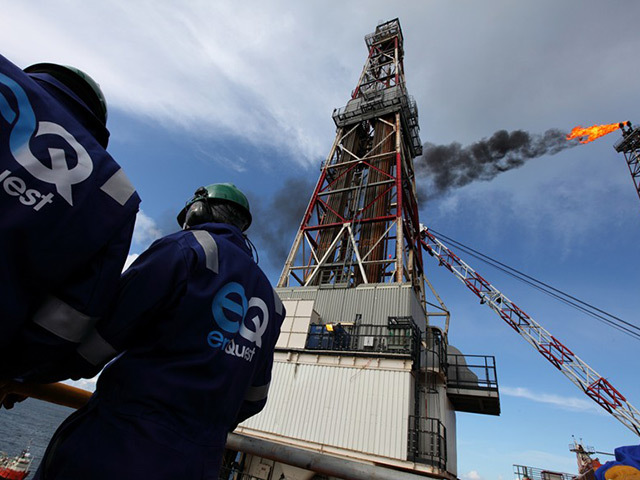
Aberdeen-based EnQuest is set to pump more than £4 billion into its Kraken oil field development, east of the Shetlands.
The North Sea driller confirmed today its field development plan for the site has been given the green light by the government’s Department of Energy and Climate Change.
The heavy oil field, located about 125 km east of the Shetland Islands, will support more than 20,000 jobs during its construction phase, and around 1,000 jobs a year during its 25-year lifespan.
Due to come on stream by 2016/17, the field will consist of 25 wells tied back to a floating production storage and offloading (FPSO) vessel.
Bumi Armada are to build the FPSO for the Kraken project, with a storage capacity of 600,000 barrels, marking their entrance into the North Sea.
The company confirmed today it had secured a letter of interim agreement for the vessel with the field’s operators, to allow work on the project to start ahead of contracts being signed.
“We expect that the heavy oil production technology applied in the Kraken FPSO will unlock similar heavy oil reserves in the North Sea and other parts of the world,” said Bumi Armada chief executive Hassan Basma.
“Our first time entry into the North Sea ushers in a new era in our relentless stride to join other similar contractors competing on their strength in execution competency and value add services.”
Net peak oil production is expected to be more than 30,000 barrels of oil equivalent per day (boepd), with gross reserves at the field of 137 million barrels. This will boost EnQuest’s reserves by about 50%.
Major supplier contracts are already in place for the development, with Enquest acting as operator with a 60% stake. Kraken will be the company’s sixth production hub in the UK North Sea.
“Kraken is a transformational project for EnQuest and we are delighted to be able to proceed with it, working with the government and our partners to maximise the extraction of approximately 140 million barrels of oil in this field, over its 25-year long life,” said chief executive Amjad Bseisu.
Scottish energy minister Fergus Ewing said the announcement and other recent investments are “unequivocal evidence” of the oil and gas industry’s faith in the North Sea’s future.
“This is also clear evidence that new opportunities still exist in the sector,” he said.
“With up to 24 billion recoverable barrels with a potential wholesale value of £1.5 trillion, more than half of the resources in the North Sea, by value, still to be extracted, it is clear that the industry will make an important contribution to the Scottish economy for decades to come.”
Industry body Oil & Gas UK said the project underlined how heavy oil allowances from the Government were stimulating new investment on the North Sea
“The Kraken project, the largest investment announced in the UK North Sea this year – and one of the largest industrial investment of 2013 – is an example of how Government tax allowances are working to stimulate activity on the UK Continental Shelf,” said the body’s operation’s director Oonagh Werngren.
“In bringing forward a particularly challenging heavy oil development, it is also a reflection on how the industry can respond to a stable and predictable business environment.
“Development of Kraken will secure a significant number of jobs for the UK, provide a valuable source of primary energy to enhance our security of supply and generate tax revenues for the Treasury, which is all very much to be welcomed.”
Enquest also confirmed today that production between between January 1st and October 31st this year averaged 23,129 boepd, up 7.2% on the same period last year.
This was boosted by strong performance at North Sea platform, Thistle, where a new production well came on stream in the middle of August.
Full production for 2013 is on track to average up to 24,500 boepd, the company said.
The FPSO vessel for the Alma/Galia field, the EnQuest Producer, is now at the OGN yard on the Tyne in Newcastle, for finishing and commissioning work. Subsea infrastructure is now in place at the field, with production due to start in the middle of 2014.
Recommended for you
